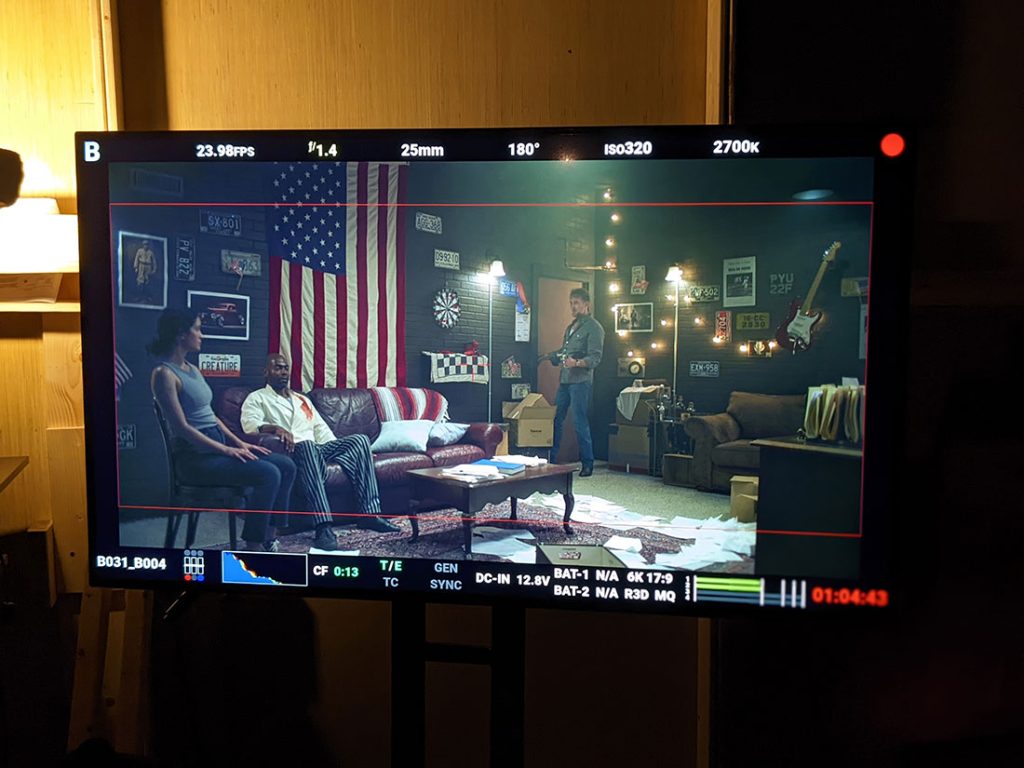It’s been four months since TV and film writers went on strike, and two months since actors followed suit. While the strikes had an immediate chilling effect on workers in California, their effects in Georgia are a bit more muted—so far. But as productions slated to gear up this fall are now on hold, many Athens residents with ties to the entertainment industry are starting to move their Plan B to a more permanent position.
“It feels like the COVID shutdown was a pretty good dress rehearsal,” said Andy Rusk, a stuntman who has been spending his free time staying in shape with horseback riding and by hitting the gym. “COVID prepared us for being out of work for six, eight, 10 months and not knowing exactly what to do with the time.”
Most stunt professionals, though, have a full-time job and do stunt work as a side gig. So, when SAG-AFTRA (Screen Actors Guild-American Federation of Television and Radio Artists) announced the strike, many just picked up more hours with their primary job, or added a new side hustle to pay the bills.
Others have been able to pick up work in the industry, although it’s inconsistent. Because the strikes are over a labor dispute with the Alliance of Motion Picture and Television Producers, or AMPTP, guild members can still work on productions not affiliated with major studios. This means music videos, commercials and independent productions are still on the table. That’s how Allen Rowell has been getting by in recent weeks. (However, the loophole no longer applies to indie films after studio executives tried to exploit it by forming their own “independent” companies.)
Rowell is part of a crew that sets up set lighting and had planned on a steady gig for the next year working on Season 5 of “Stranger Things.” When that production was put on hold in June, he turned to working on commercials, occasional work with productions at The Classic Center when they come through town and even a few promotional videos with departments at the University of Georgia. The pause for “Stranger Things” had an unintended benefit, too: He was able to work on a friend’s independent film.
“I didn’t think I’d be able to work on it here in Athens because of my commitment with my gaffer [chief electrician] and my team in Atlanta, but since that wasn’t happening, I got to work on it, which was great,” said Rowell. The film, shot over a seven-day period at Athena Studios, took place just as the SAG-AFTRA strike began. Then, a storm blew through Athens, knocking out power to the studio for several days. “These folks were stressed,” Rowell added.
The Atlanta office of SAG-AFTRA did not have an estimate of the number of members in the Athens area, but Atlanta chapter president Eric Goins and past president Mike Pniewski sent Flagpole a joint statement affirming their support for members. Without a change in the payment structure with studios and streaming services, they wrote, the profession will no longer be an option for future generations of performers.
“SAG-AFTRA stands ready to negotiate a fair deal for our members, but our resolve to secure fair compensation that accounts for inflation and includes revenue sharing, protection from AI technology (that includes consent, compensation and control) and updates to our pension and health contribution caps, which haven’t been changed in decades is unwavering,” they wrote.
Local entertainment industry workers also noted how the strike is highlighting the larger issue of residual payments, which have long been a staple in TV and films but no longer exist with streaming services. On top of that, studios have been inconsistent with existing residual payments, adding to actors’ and writers’ stress.
Hammering out a deal with studios on residuals is key, said Rusk, because they can serve as actors’ retirement plans. Studios affiliated with streaming services are also where most of the work is these days.
“When I started as a stunt man 13 years ago, 90% of my work was in feature films that would have a theatrical release or be on network or cable TV, and 10% would have been a streaming service,” said Rusk. “Thirteen years later, my work is 90% streaming.”
Because of that shift, what was once a motion picture that would result in a residual check of a couple hundred dollars from a popular movie has now become a fraction of that amount. At the same time, costs for groceries, gas and health insurance have risen.
It’s a pinch to take part in the strike, local entertainment professionals say, but it’s worth it when considering long-term effects and retirement plans. Some have savings to rely on. Some have a second job. Some, like Rusk, are staying busy with hobbies and being patient.
Rowell chuckles when he considers the situation—on the one hand, he has a well-paying, stable job for the next year that’s on hold. It’s so close, but so far. But that’s just the nature of the business, he said.
“You can’t be in this business without a slush fund and being able to get by when you have to,” he said. “I could apply for unemployment at this point, but I haven’t done that yet. I’m going to see how long it’s going to go.”
Like what you just read? Support Flagpole by making a donation today. Every dollar you give helps fund our ongoing mission to provide Athens with quality, independent journalism.
